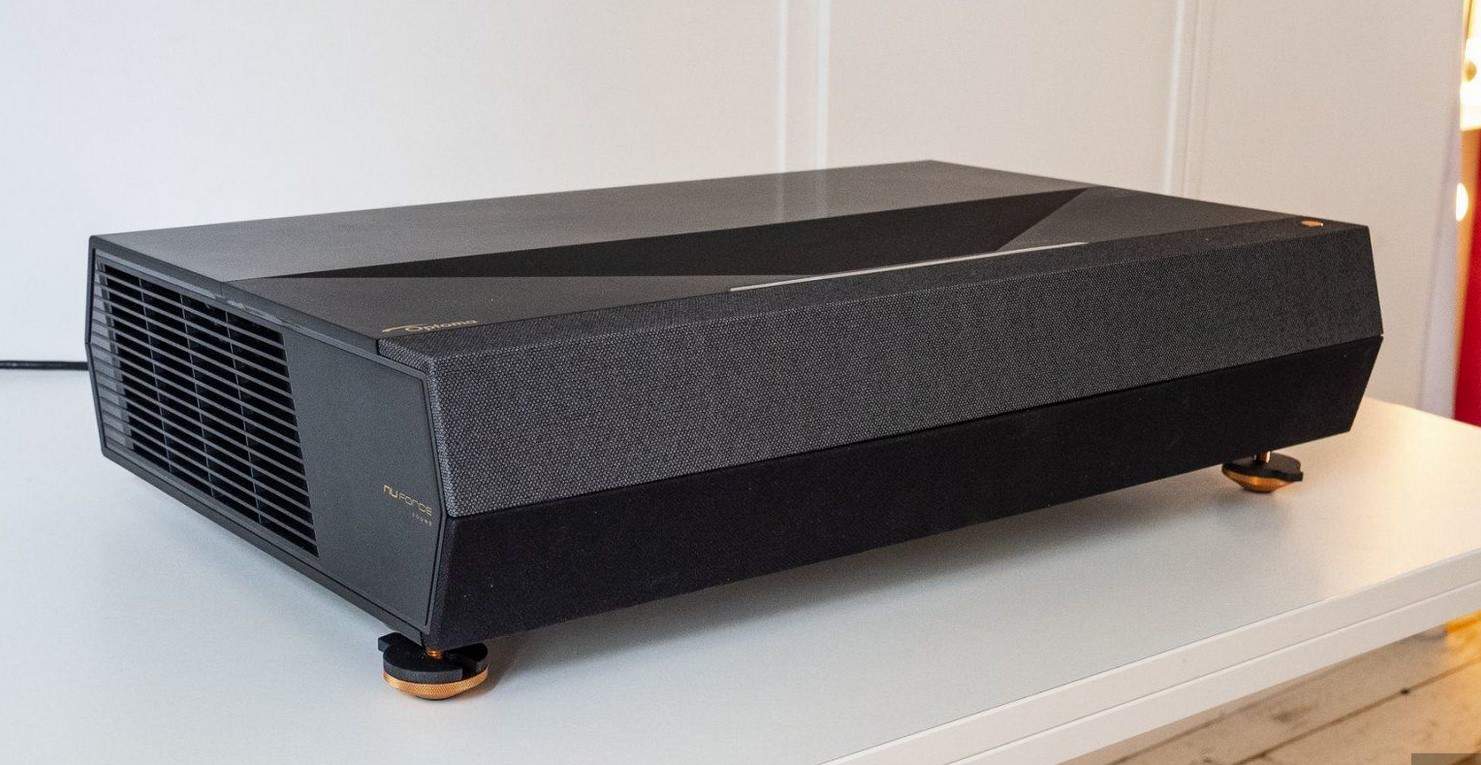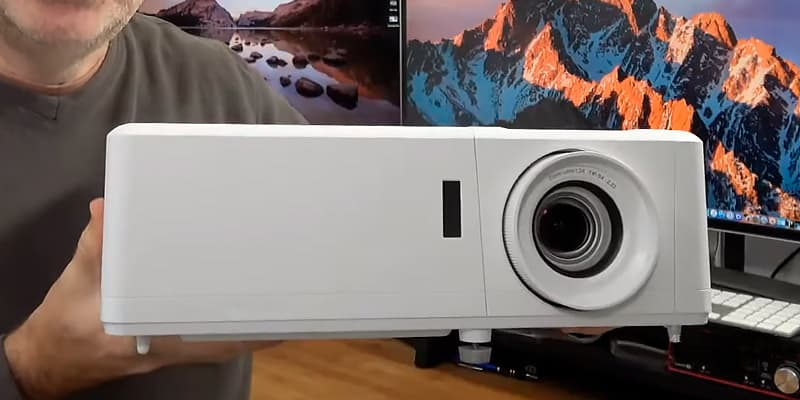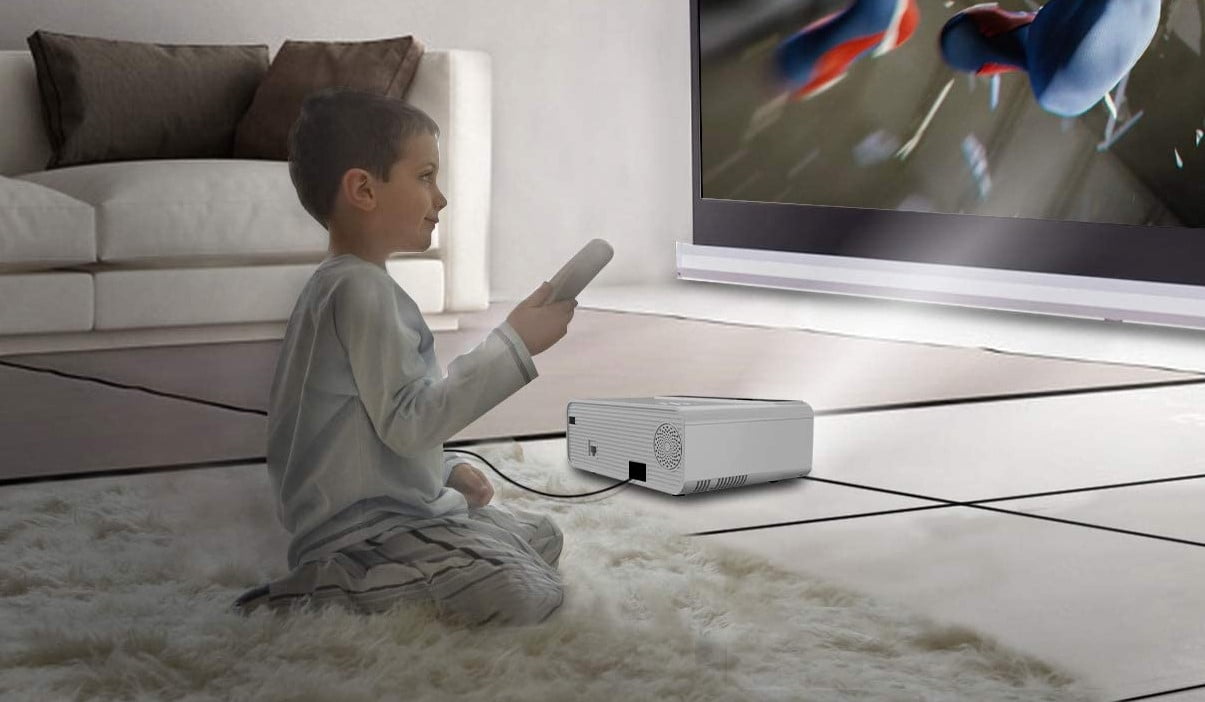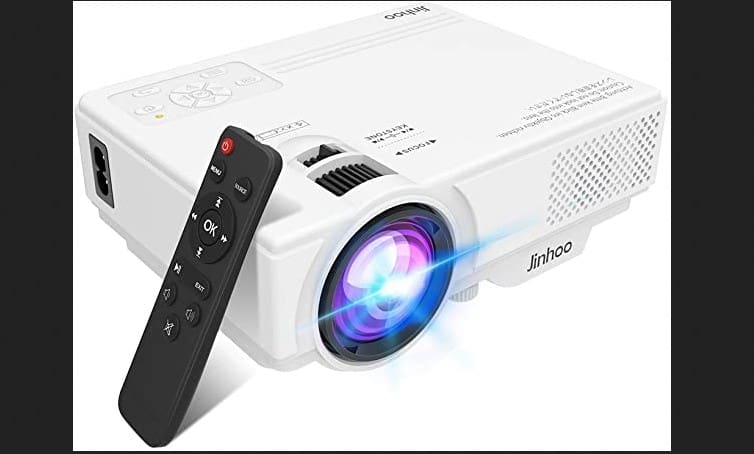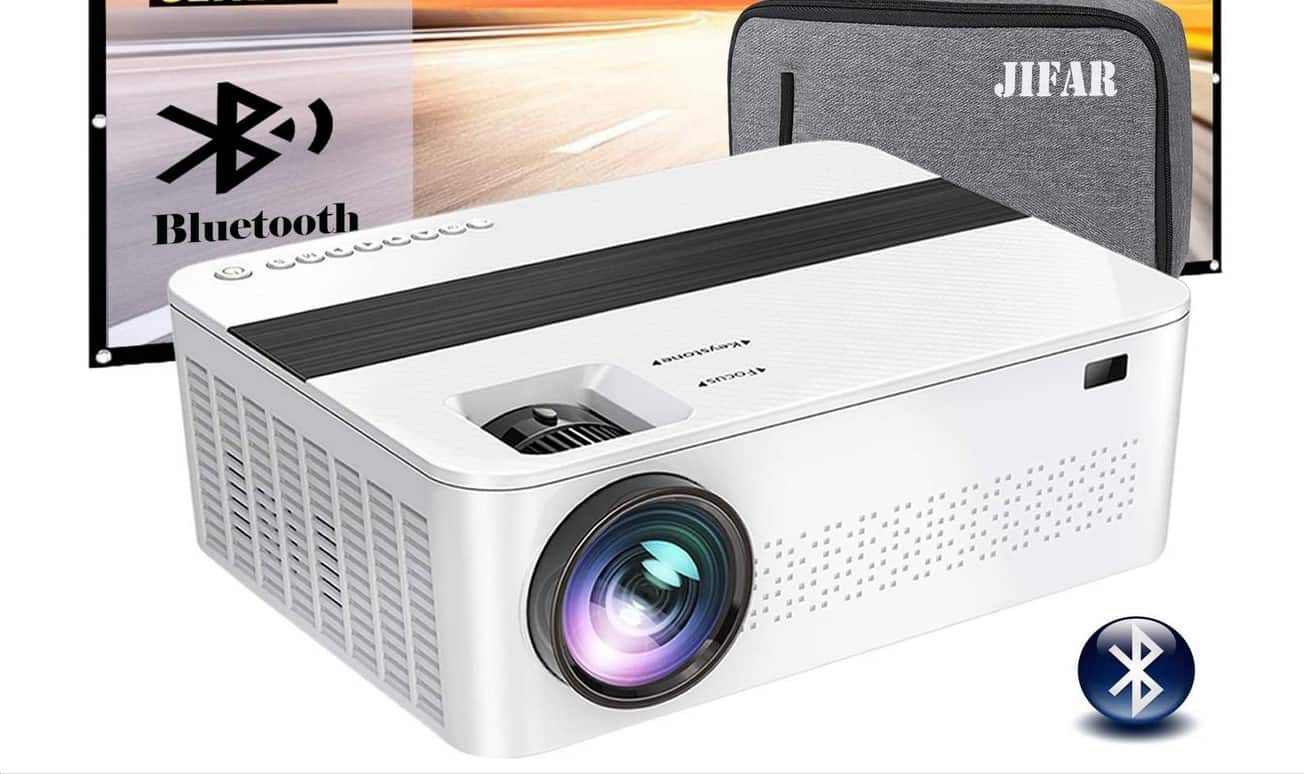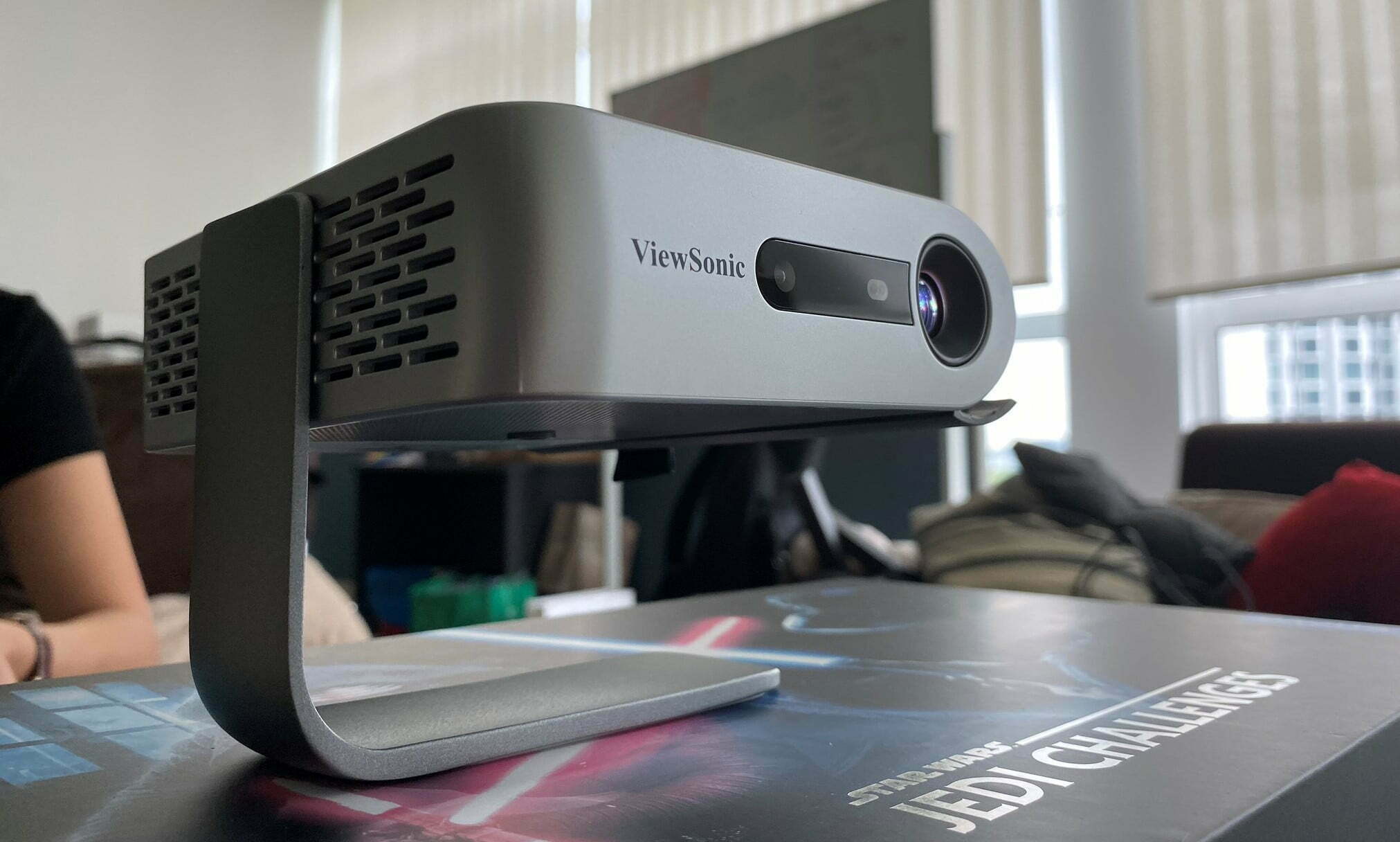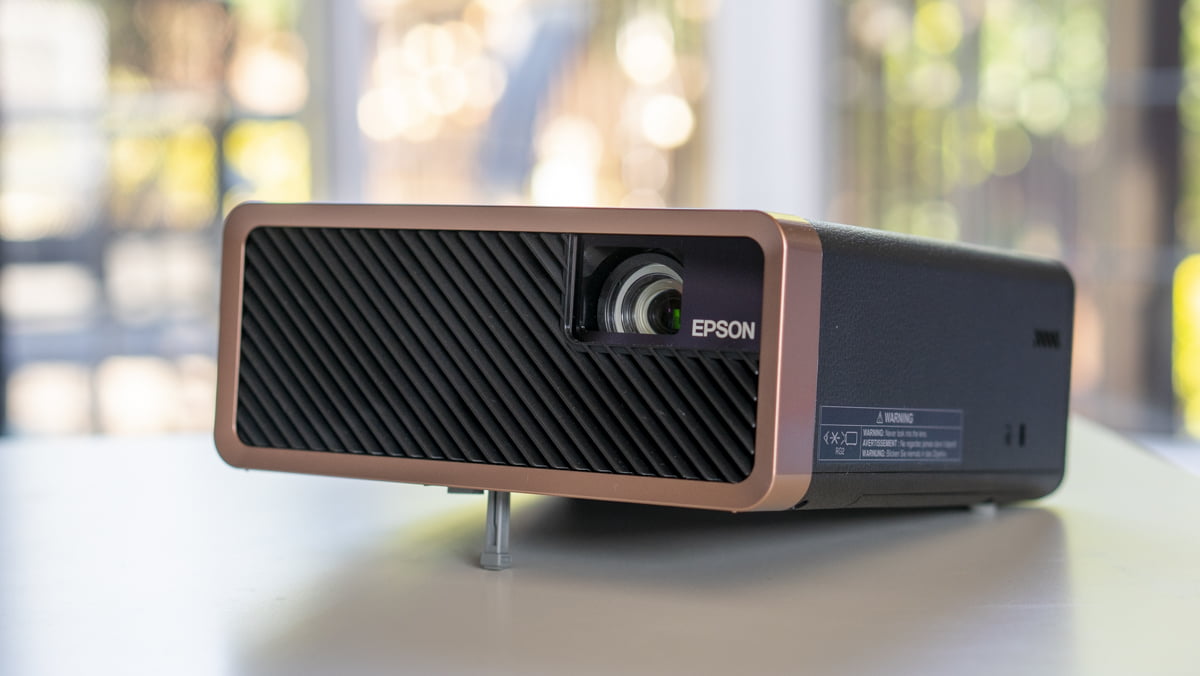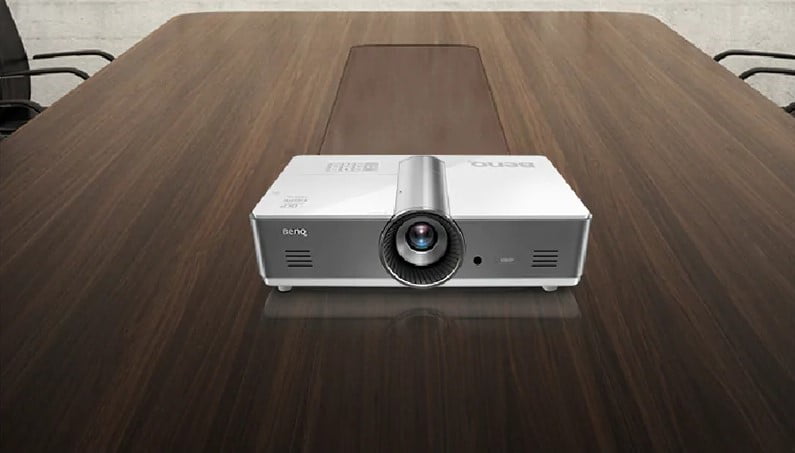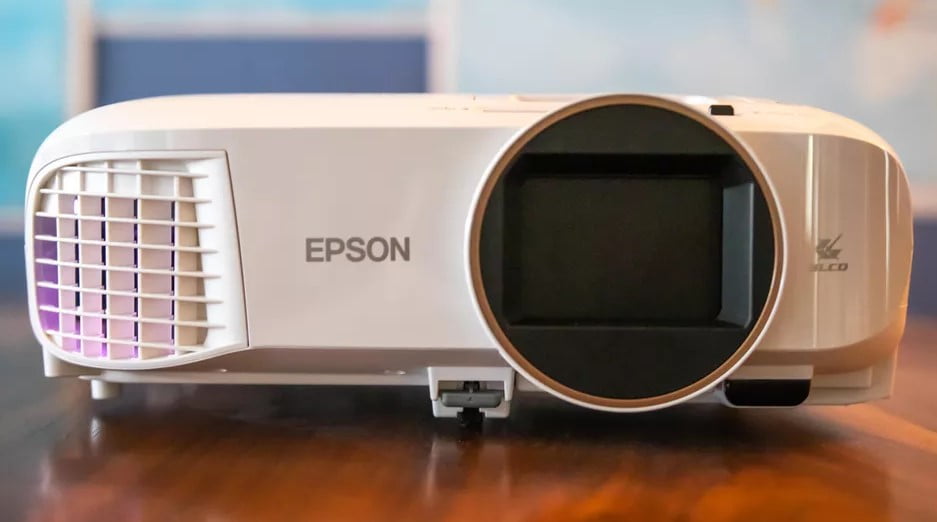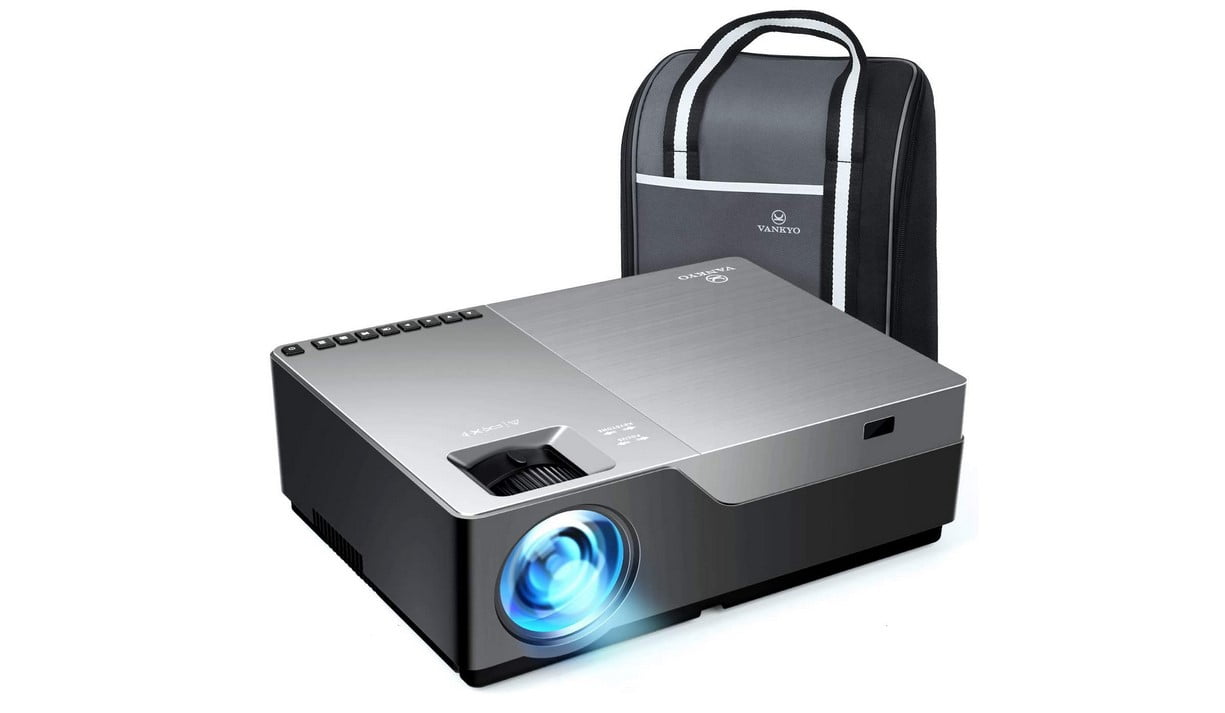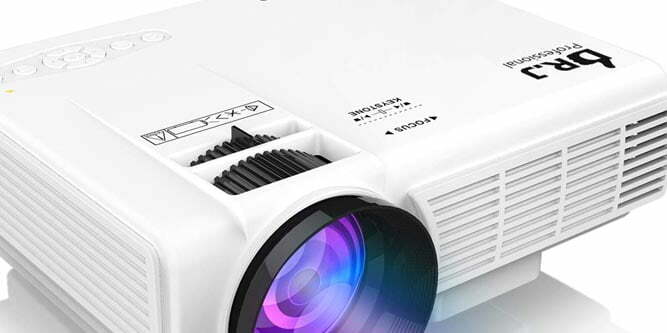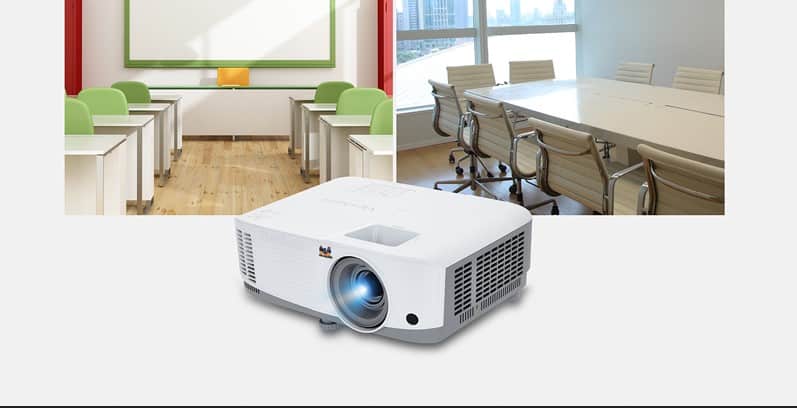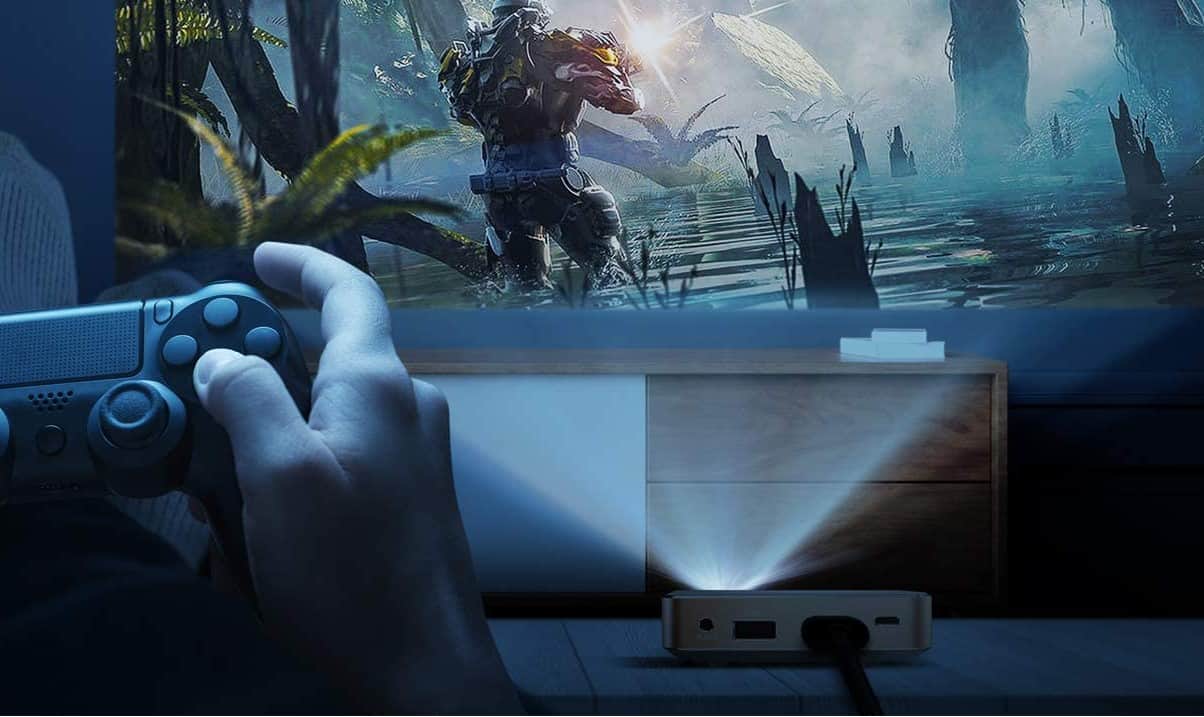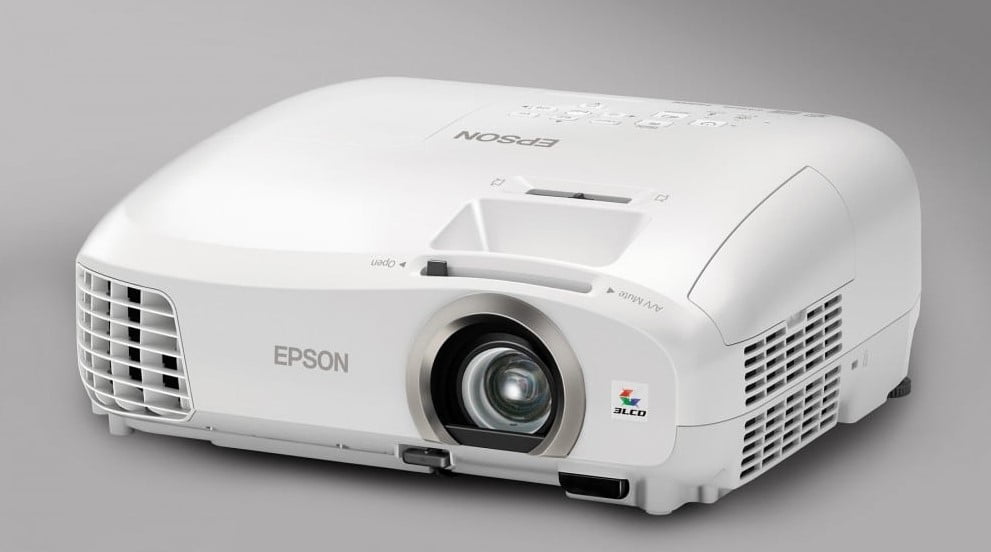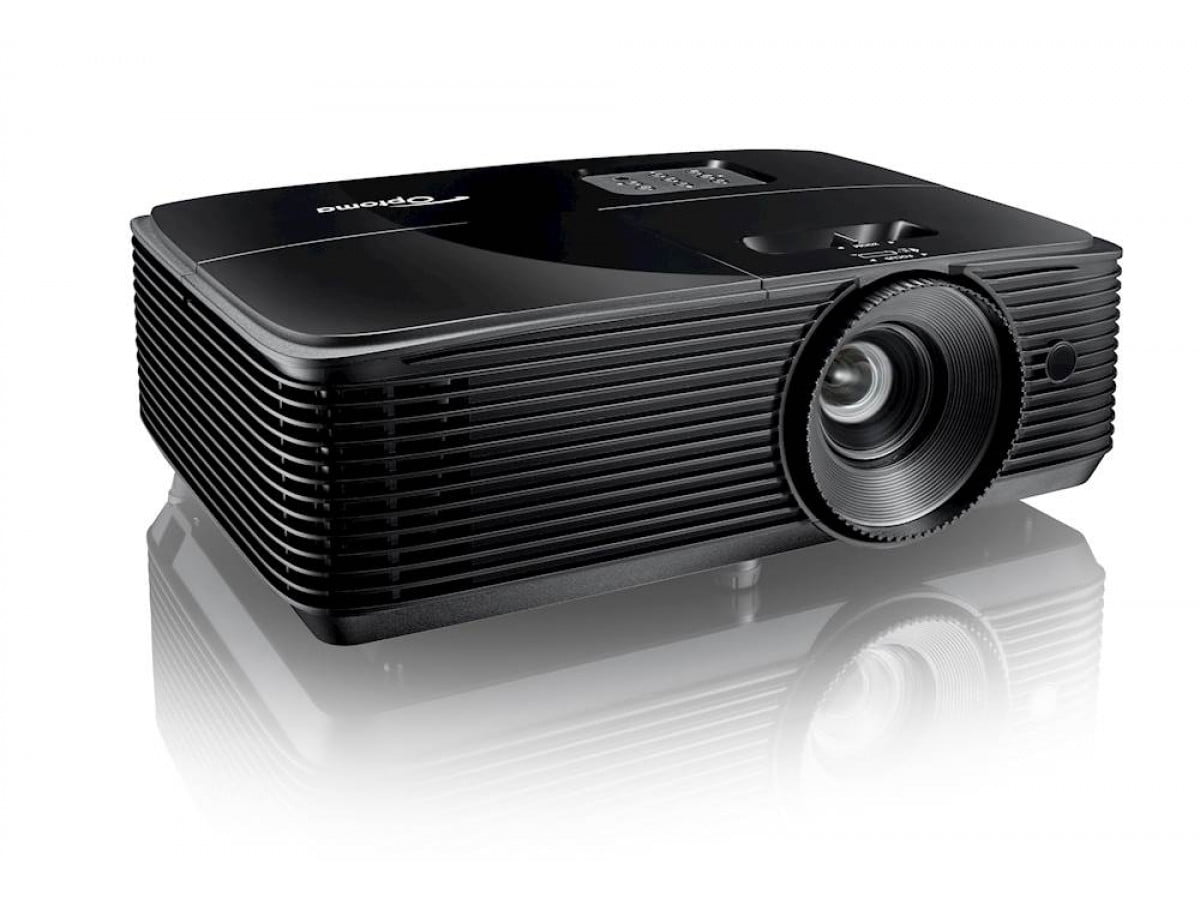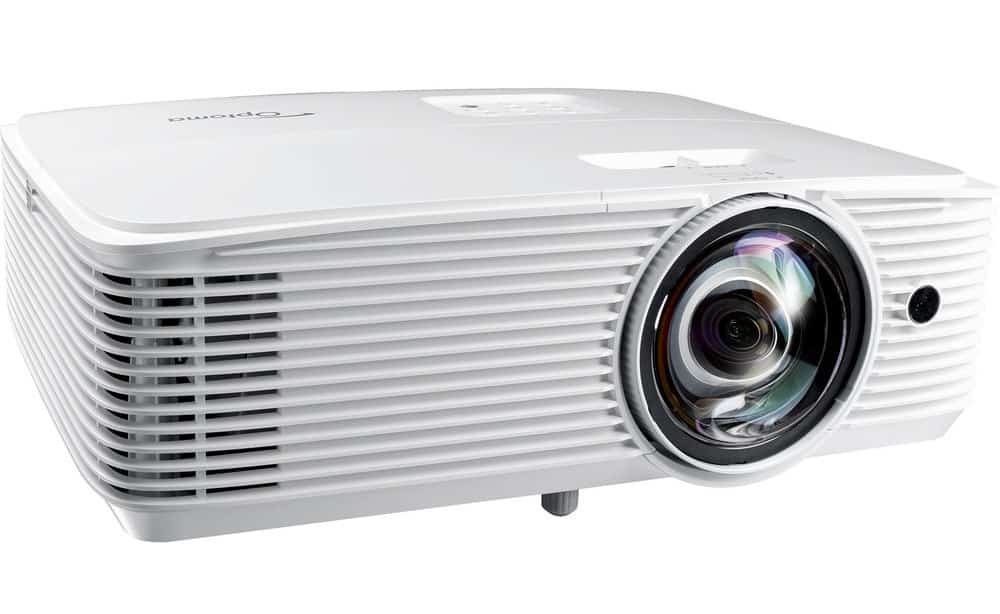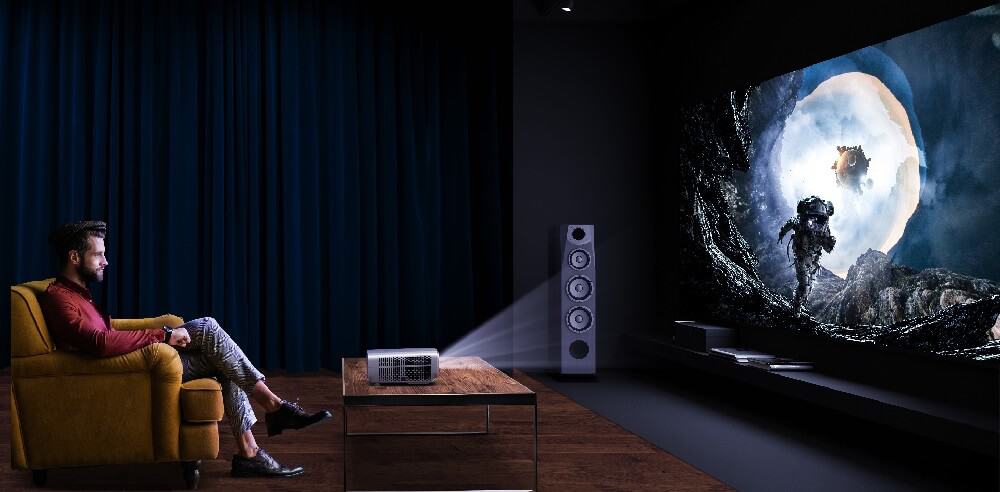Key Takeaways
- A rear projector screen is an excellent choice if you have ample space and high amounts of ambient light.
- Go with a front projector screen if you want a smaller setup or have a dedicated theater room.
- A rear projection screen is better for large gatherings, but a front projection is better for small viewings.
If you’re shopping for the best projector, you’ve probably wondered about a rear projector screen vs front-projection systems. The type of screen surface you use will seriously change your home theater environment. It will also affect your viewing angle, screen size, and black levels. So, if you’re unsure about whether you should use a front or rear projection screen, read on.
Rear-Projection vs Front-Projection Setup
The main difference between front and rear-projection materials is how the screen treats light. Rear projection setups rely on diffusing the light source to create an image. Alternatively, front projection depends on reflecting sources of light away from the screen. Both projection styles will take up different amounts of valuable space.
For front or rear projection, you can use a black, gray, or white screen. If you’re not sure which is best for you, check out our grey vs. white projector screen guide.
Image Quality
If you want a fantastic picture for your movie night, most setups will call for a front projection screen. That said, if you have ample enough space for the extra equipment, a rear-projection setup will also deliver crisp visuals. In addition, a rear-projection unit will perform better if your movie room gets much ambient light. If the image quality is your highest priority feature, see our guide on WXGA vs. HD projectors.
Viewing Angles
Consider your audience size and where they will sit relative to the viewing surface. If you want a wide viewing angle, go with a front projection setup. Rear-projection screens have a slight optimal angle before the screen gain decreases, impacting the image brightness.
Brightness
If you want a brighter image, consider your home theater environment. For example, if you have a dark home theater, go with a front projector screen. You can compare fixed screens vs pull-down projector screens to see which one will work best for you. That said if you want to build a great outdoor theater, go with rear projection.
Ambient Light
Rear projection is the best choice if you deal with ambient light situations. This is because your image will often improve with a higher ambient light level if you use rear projection. That said, you can find front projecting setups equipped with an ALR (Ambient Light-Rejecting) screen.
Stats
Consumers spent $15.7 billion on movies and television shows consumed at home and away in the first six months of 2021. (www.degonline.org)
Tip: If you go with a rear projection screen, remember to save floor space for equipment because the screen cannot sit against the wall.
Warning: Do not use an outdoor projector unless you have clear weather. If any water were to enter the projector fan vents, it may cause irreparable damage.
| Rear Projection Screen | Front Projection | |
| Image Quality | X | X |
| Viewing Angles | X | |
| Brightness | X | X |
| Ambient Light | X | |
| Portability | X |
https://www.youtube.com/watch?v=8cvJh9F1ocA
https://www.ooberpad.com/blogs/audio-video-tips/ooberguide-front-projection-screens-vs-rear-projection-screens
https://scienceinthecity.stanford.edu/resources/home-projector/
https://csiff.org/kkdks55a/home-theater-repair-service-near-me-54b471

















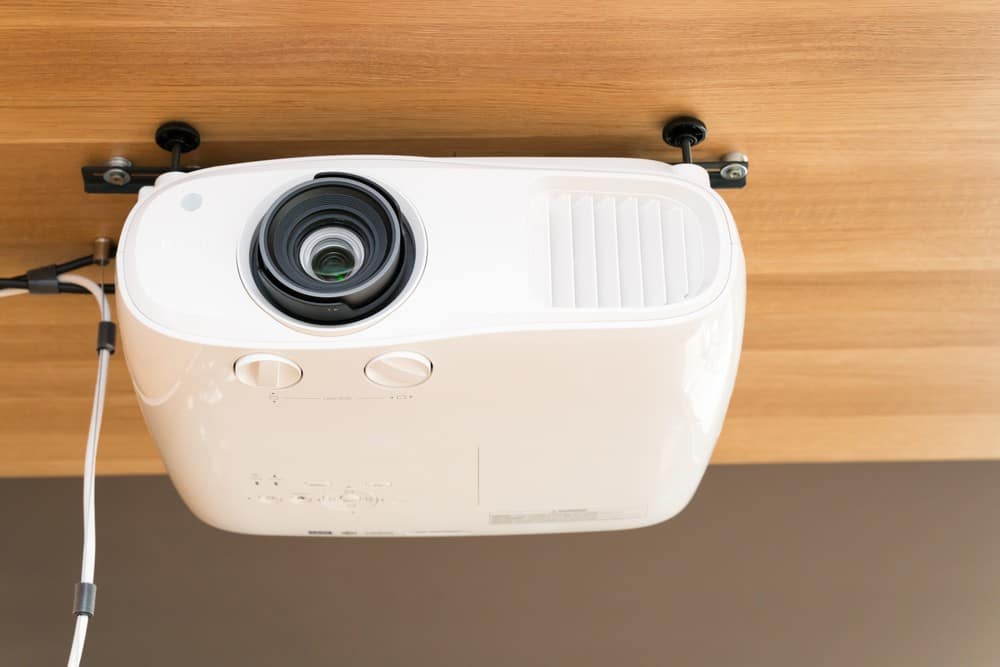
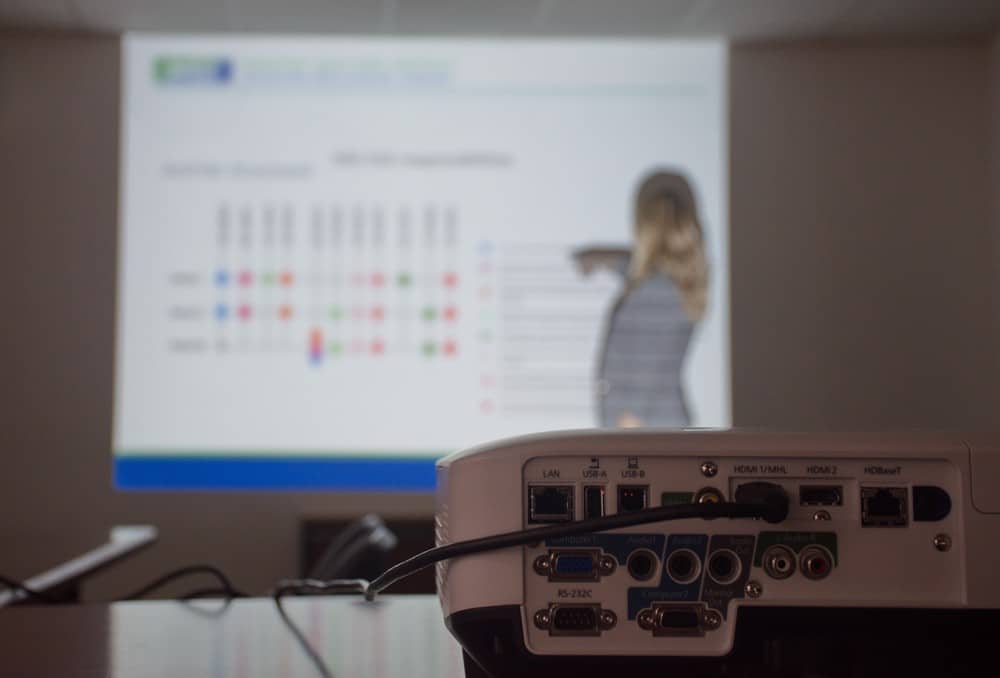



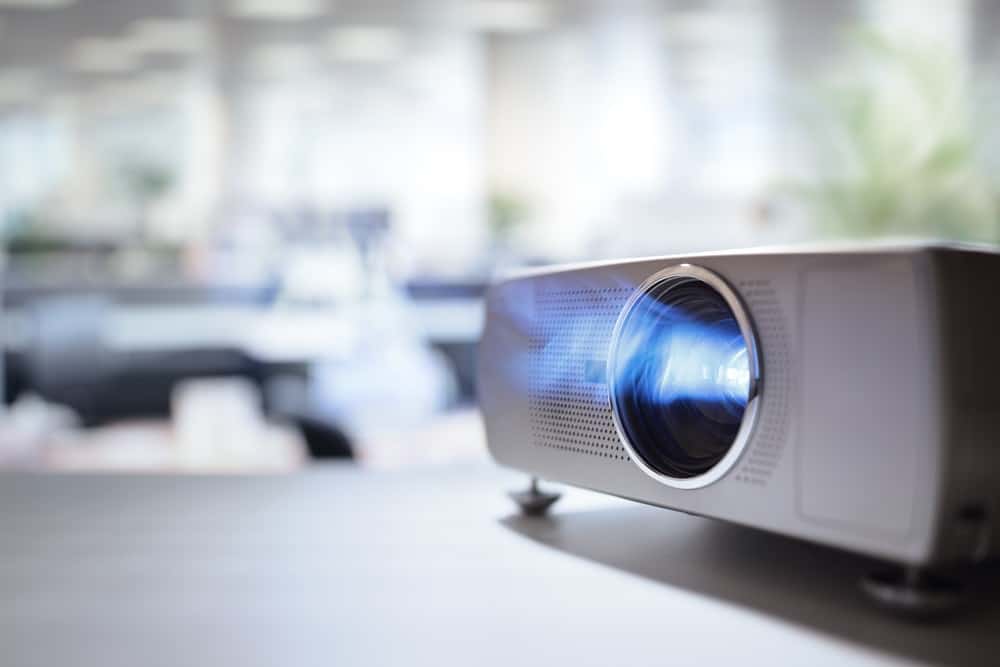
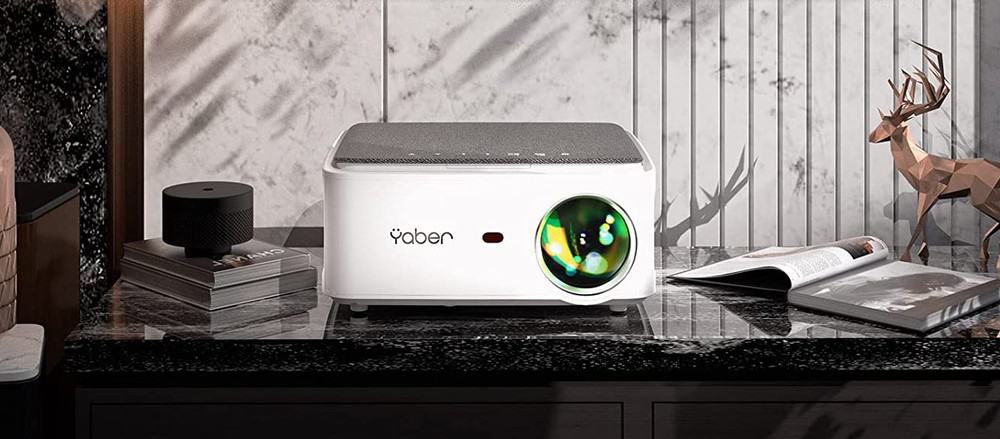

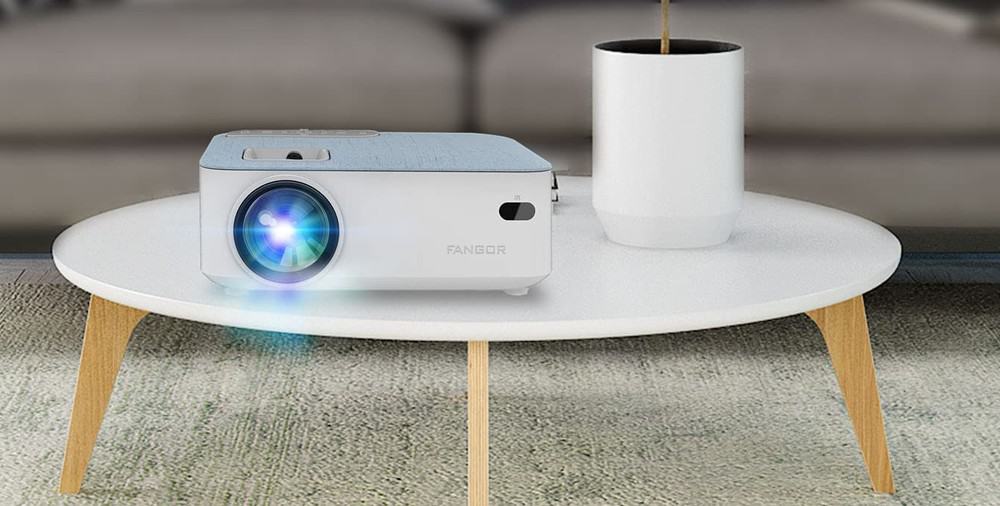

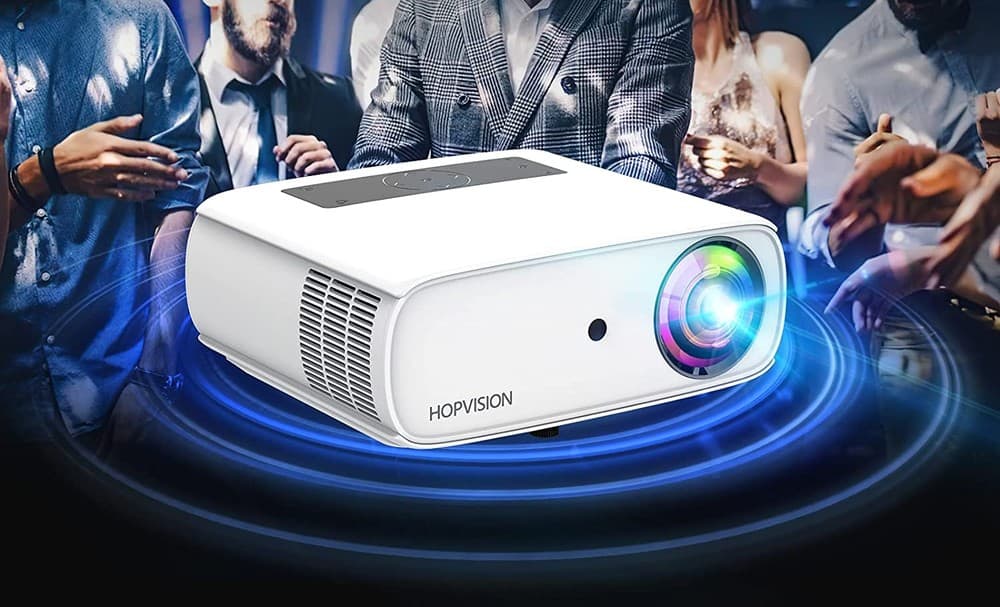

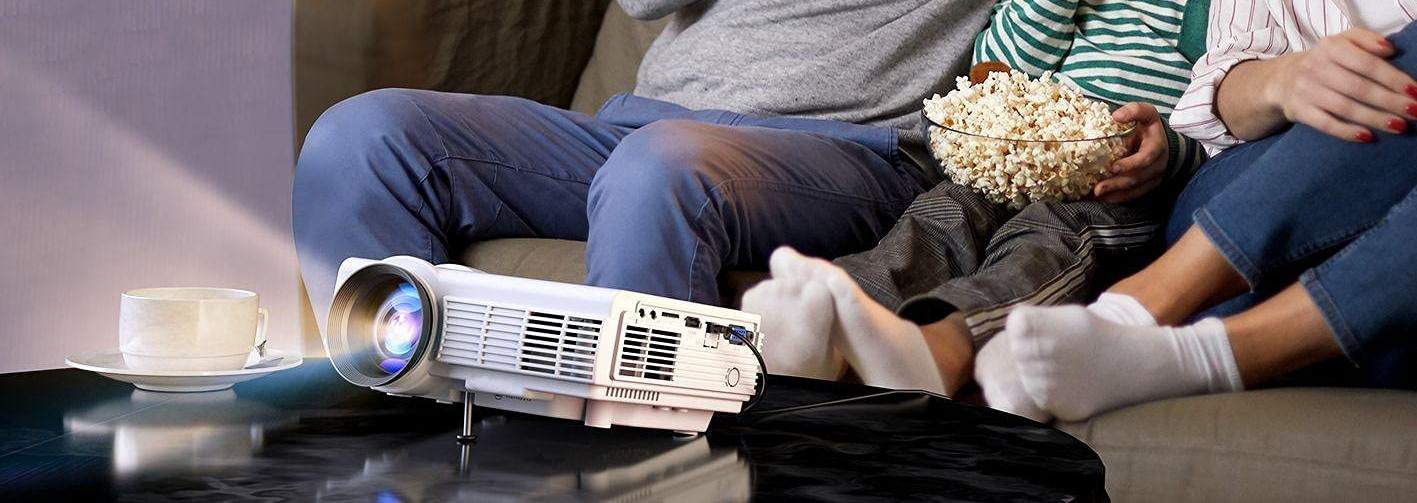
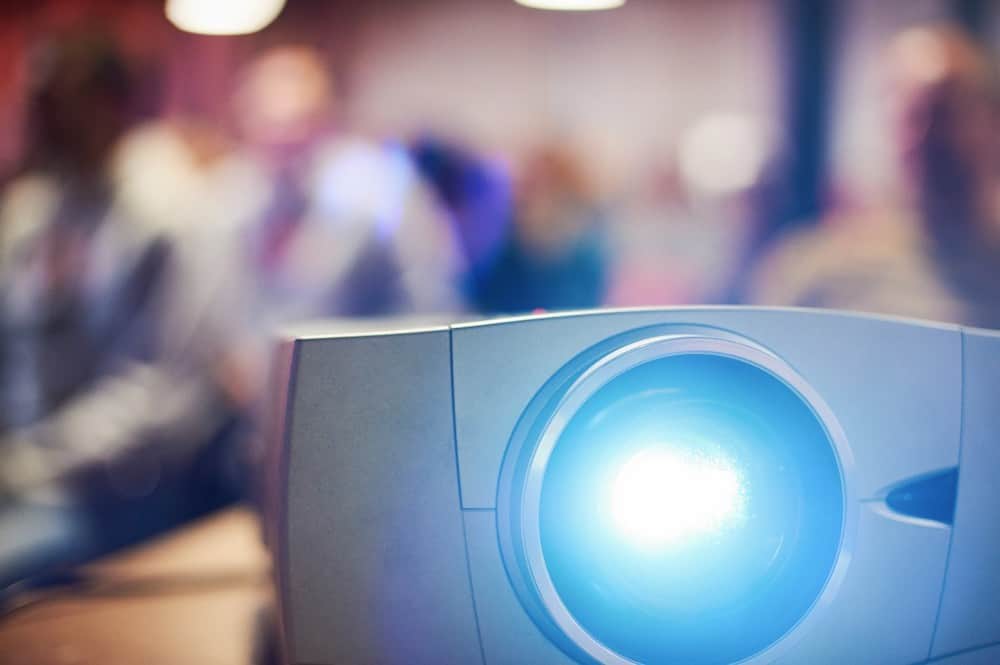
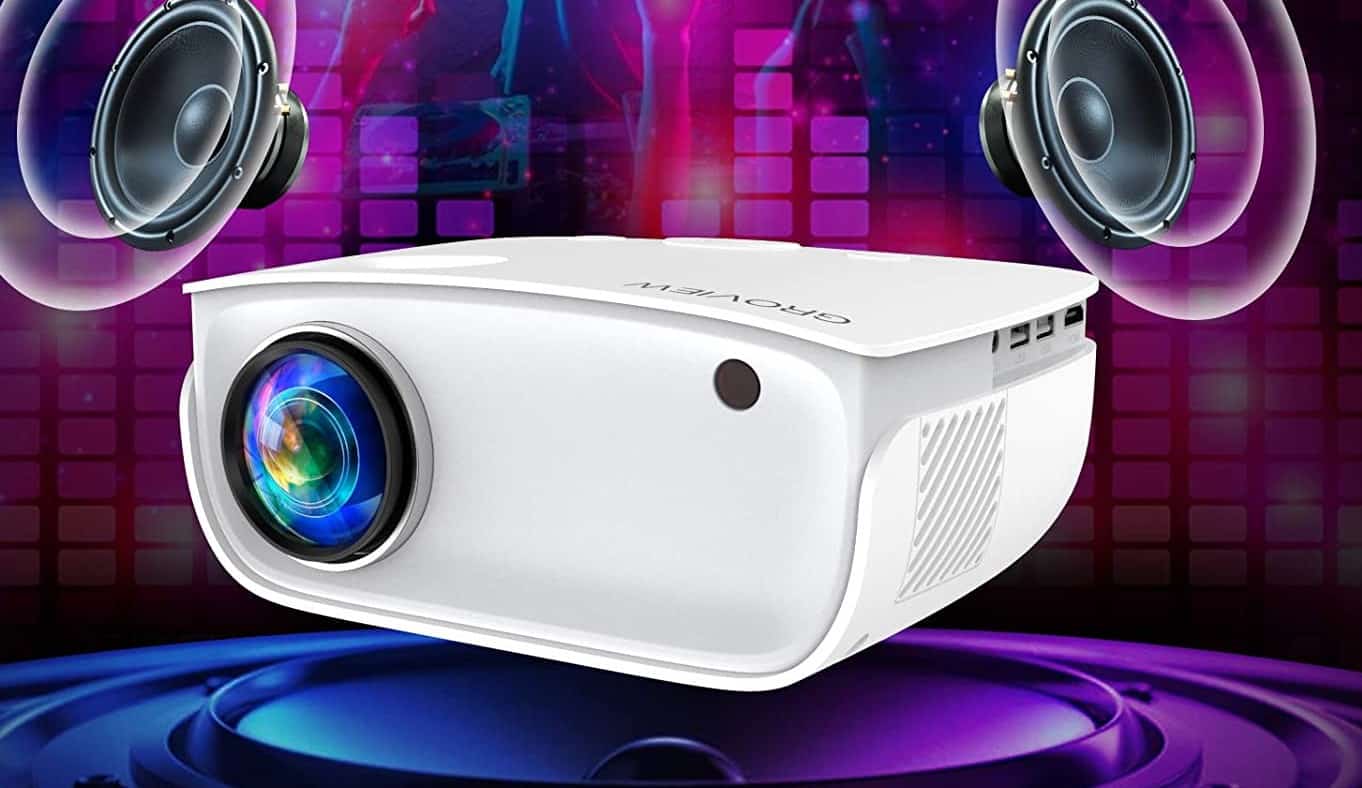
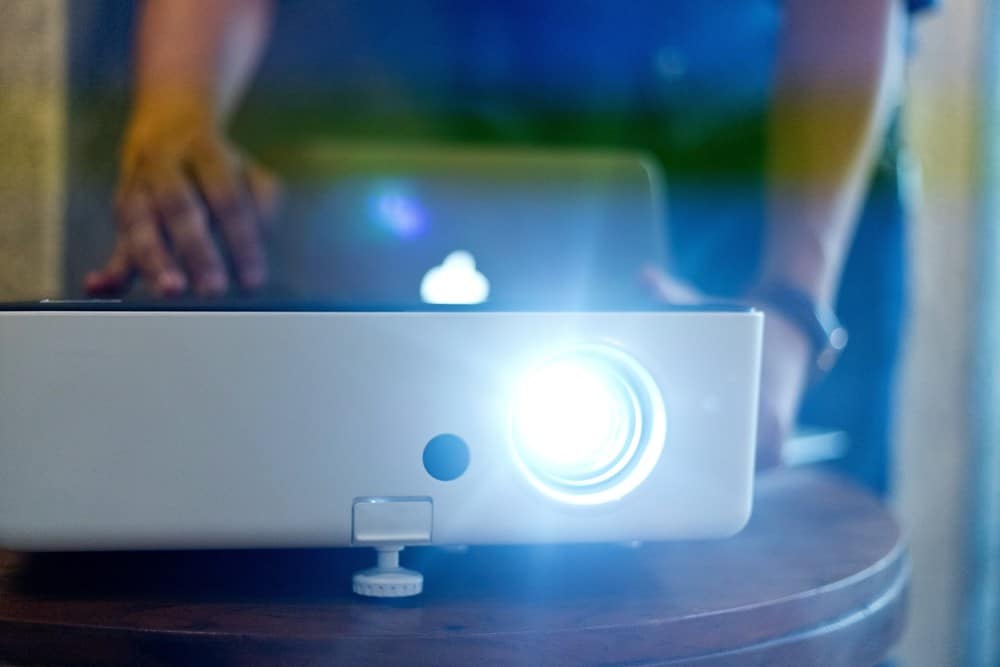

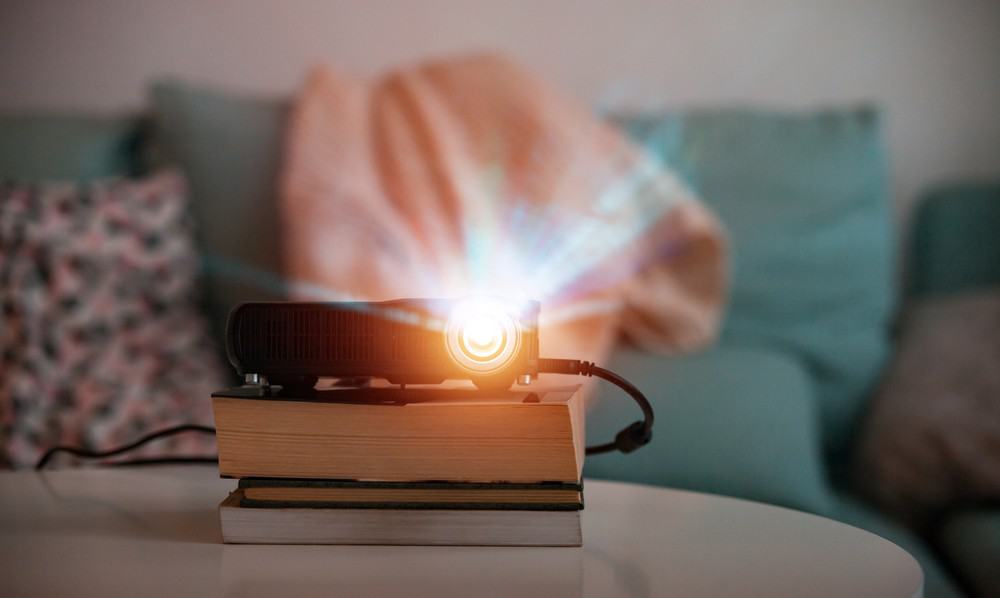
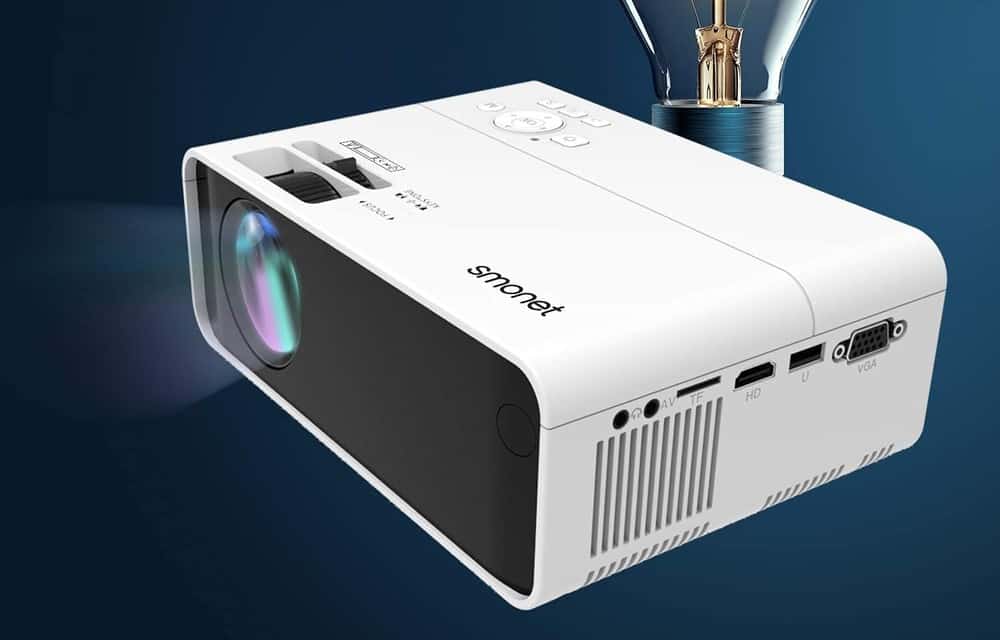
![Best Projectors for Daylight Viewing in [year] 27 Best Projectors for Daylight Viewing in 2026](https://www.gadgetreview.dev/wp-content/uploads/best-projector-for-daylight-viewing-image.jpg)
![Best Samsung Projectors in [year] 28 Best Samsung Projectors in 2026](https://www.gadgetreview.dev/wp-content/uploads/best-samsung-projectors-image.jpg)
![Best NEC Projectors in [year] 29 Best NEC Projectors in 2026](https://www.gadgetreview.dev/wp-content/uploads/best-nec-projectors-image.jpg)
![Best Acer Projectors in [year] 30 Best Acer Projectors in 2026](https://www.gadgetreview.dev/wp-content/uploads/best-acer-projectors-image.jpg)
![Best Quiet Projectors in [year] 31 Best Quiet Projectors in 2026](https://www.gadgetreview.dev/wp-content/uploads/best-quiet-projector-image.jpg)
![Best Projectors for Golf Simulator in [year] 32 Best Projectors for Golf Simulator in 2026](https://www.gadgetreview.dev/wp-content/uploads/best-projector-for-golf-simulator-image.jpg)
![Best Conference Room Projectors in [year] 33 Best Conference Room Projectors in 2026](https://www.gadgetreview.dev/wp-content/uploads/best-conference-room-projector-image.jpg)
![Best InFocus Projectors in [year] 34 Best InFocus Projectors in 2026](https://www.gadgetreview.dev/wp-content/uploads/best-infocus-projectors-image.jpg)
![Best Mini Projector in [year] ([month] Reviews) 35 Best Mini Projector in 2026 (January Reviews)](https://www.gadgetreview.dev/wp-content/uploads/best-mini-projector-image.jpg)
![Best Panasonic Projectors in [year] 36 Best Panasonic Projectors in 2026](https://www.gadgetreview.dev/wp-content/uploads/best-panasonic-projectors-image.jpg)
![Best Sony Projectors in [year] 37 Best Sony Projectors in 2026](https://www.gadgetreview.dev/wp-content/uploads/best-sony-projectors-image.jpg)
![Best Projector Stands in [year] 38 Best Projector Stands in 2026](https://www.gadgetreview.dev/wp-content/uploads/best-projector-stand-image.jpg)
![Best Ultra Short Throw Projectors in [year] 39 Best Ultra Short Throw Projectors in 2026](https://www.gadgetreview.dev/wp-content/uploads/best-ultra-short-throw-projector-image.jpg)
![Best Projectors for a Living Room in [year] 40 Best Projectors for a Living Room in 2026](https://www.gadgetreview.dev/wp-content/uploads/best-projector-for-living-room-image.jpg)
![Best RCA Projectors in [year] 41 Best RCA Projectors in 2026](https://www.gadgetreview.dev/wp-content/uploads/best-rca-projectors-image.jpg)
![Best Optoma Projectors in [year] 42 Best Optoma Projectors in 2026](https://www.gadgetreview.dev/wp-content/uploads/best-optoma-projectors-image.jpg)
![Best BenQ Projectors in [year] 43 Best BenQ Projectors in 2026](https://www.gadgetreview.dev/wp-content/uploads/best-benq-projectors-image.jpg)
![Best Projectors for Church in [year] 44 Best Projectors for Church in 2026](https://www.gadgetreview.dev/wp-content/uploads/best-projector-for-church-image.jpg)
![Best Projectors for Classroom in [year] 45 Best Projectors for Classroom in 2026](https://www.gadgetreview.dev/wp-content/uploads/best-projector-for-classroom-image.jpg)
![Best Epson Projectors in [year] 46 Best Epson Projectors in 2026](https://www.gadgetreview.dev/wp-content/uploads/best-epson-projector-image.jpg)
